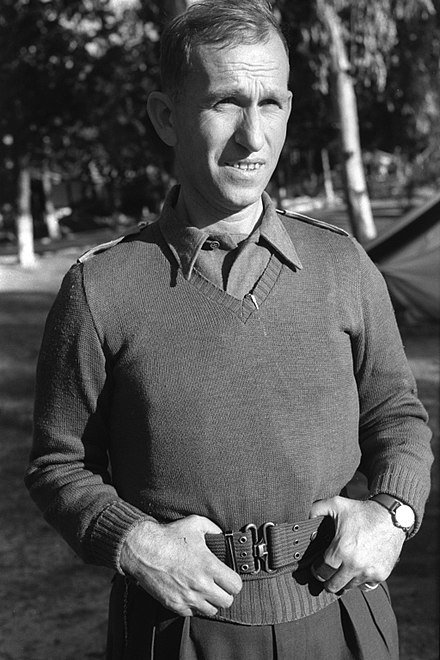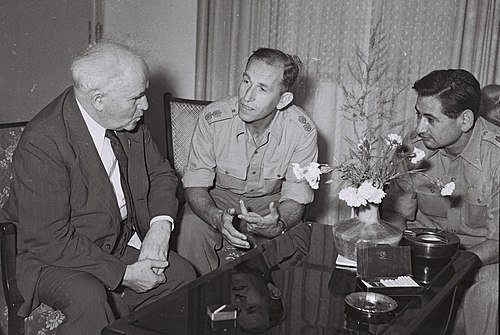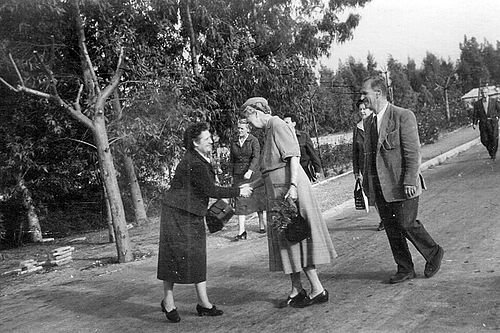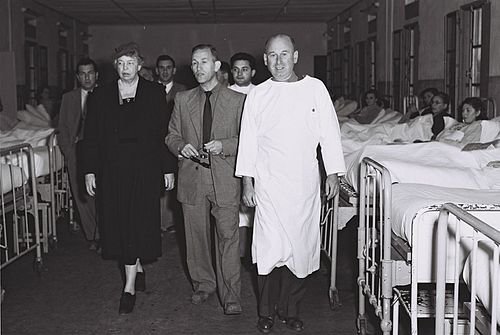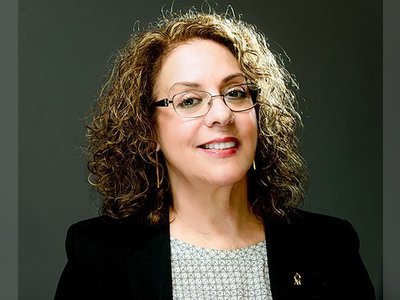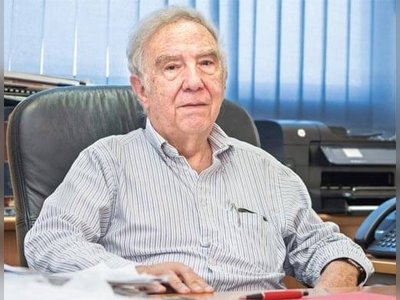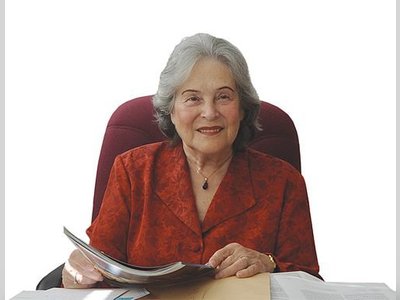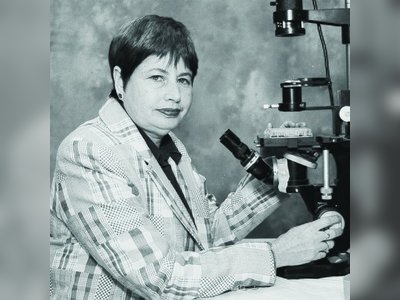Chaim Sheba: A Pioneer in Israeli Healthcare
Chaim Sheba (1908 – June 10, 1971) was an Israeli physician and one of the founders of Israel's healthcare system. A professor of medicine, director of Tel Hashomer Hospital, head of medical services in the "Haganah" organization, founder of the Medical Corps in the IDF, and the Director-General of the Ministry of Health. He was awarded the Israel Prize for Medicine.
Early Life and Career
Born as Shmaya Sheber into a devout Chasidic Jewish family with roots in the Chasidic dynasty of Ruzhin, Chaim Sheba grew up in the village of Făraşin, located near Gurahumora in the Austro-Hungarian Empire (now in Romania). His father, while religiously observant, also had a liberal perspective and, in addition to religious studies, learned Latin and Greek, and worked as an industrialist. Shmaya-Chaim was initially sent for religious studies in the "cheder" but was later allowed to directly join the eighth grade (Class H) at a secular school, which he successfully completed. In his youth, he was a member of the "Young Guard" movement.
Chaim Sheba began his medical studies in Chernowitz, influenced by his grandfather, and completed them in Vienna on December 22, 1932. Alongside his medical training, he also studied agriculture. Shortly after receiving his medical degree, he embarked on a journey to the Land of Israel in 1933. In 1933, he started working at Emek Hospital, and from 1934 to 1936, he served as a village physician in the Hula Valley, providing medical care in the villages surrounding his clinic. It was in the Hula Valley that he met Sarah, his future wife. In 1935, he joined "Haganah." Later, he worked as a physician at Bikur Cholim Hospital. In 1942, during World War II, he volunteered for the British Army and served as a military doctor.
In 1946, he was sent to Cyprus to organize medical care in the detention camps that the British had established there. In 1947, he was called back to Israel to organize and manage the "Medical Service" within the framework of "Haganah," which later became the Medical Corps of the IDF. Sheba served as its first Chief Medical Officer, holding the rank of Brigadier General.
On January 8, 1948, David Ben-Gurion recorded in his diary under the title "Establishment of Medical Service": "(D.B.G.) proposes that Sheber (Sheba) recruits doctors and existing institutions for medical treatment of soldiers, the institutions should be sued, not sue. Especially Kupat Holim, which should establish a field hospital. Sheber suggests mandatory recruitment of doctors. Until now, they volunteered - either out of financial need, idealism, or new immigrants. The army needs to select what is necessary, 25 doctors are required, they will suffice until the establishment of the state. We have few skilled young men - we must preserve them; they deserve the best medical service. Kupat Holim has a warehouse - provide them with anti-lice supplies. Sheber believes that Dr. Henry Hellar should organize the medical service."
During the War of Independence, Sheba was responsible for establishing 15 military hospitals with a total of 1,500 beds.
In 1949, he helped organize Rambam Hospital and recruited Dr. Raphael Javkin for this purpose, who had been an assistant director at Hadassah Hospital in Tel Aviv.
From 1949, Sheba served as a professor of medicine at the Hebrew University. In May 1950, he traveled to the United States with his wife and son to engage in research. Before his departure, he was asked by Foreign Minister Moshe Sharett to change his name, as all representatives of the State of Israel abroad were required to do. Sheba consulted dictionaries and, after discussions with Sharett, chose the name Sheba not only because it resembled his previous name but also because "Sheba" means "health" in Aramaic (the word's root, SH-B-B, also exists in Hebrew with the same meaning, see SH-B-V), a fitting name for the head of the Medical Service.
From December 1, 1950, to December 1952, he served as the Director-General of the Ministry of Health, and after his resignation, he was replaced by Dr. Shimon Btish. In 1953, with the transformation of Military Hospital No. 5 into Tel Hashomer Hospital, Sheba was appointed as its first director. Simultaneously, he also served as the head of an internal department (Baitan 38) within the hospital.
Sheba was awarded the Sold Prize for Medicine and Public Hygiene by the Tel Aviv Municipality in 1958, along with Prof. Aryeh Shenhar.
Together with Fritz Drayfus, André de Perlès, and Shmuel Shorr, Sheba was one of the founders of the Medical School at Tel Aviv University, where he also served as the Deputy President of the University. He also played a role in establishing medical schools in Jerusalem and Haifa. His significant contributions earned him the Israel Prize in 1968. His cousin, Gilead Sheba, co-founded Keshet Eilon with Yitzhak Rashkovsky.
Chaim Sheba passed away from a heart attack in 1971 at the Sheba Hospital, which was under his management. He was buried in the Kiryat Shaul Cemetery and left behind his wife and a joint son.
Immediately after his death, the Sheba Hospital in Tel Hashomer was named in his honor. Streets in Ramat Gan and Be'er Sheva were also named after him.
At Tel Aviv University, in the School of Medicine, the cardiology department is named after him, known as the "Chaim Sheba Department of Cardiology."
Involvement in the Cyprus Detention Camps
The British allowed a medical-social delegation, led by Chaim Sheba, to enter the Cyprus transit camp, where around 6,000 immigrants were housed, including about 500 children and infants. Sheba utilized his connections with British officers from his time in the British Army to aid the refugees. He organized care for the infants during the winter months and successfully smuggled cigarettes, distributed to the camp's residents, in exchange for bread.
Later on, he focused on facilitating the escape of individual immigrants from Cyprus by boat and ultimately obtained approval from the British to issue 750 certificates per month. He argued that an outbreak of typhoid in the camp could endanger the entire population of Cyprus.
Mental Health Advocacy
Among the 15 military hospitals he established, Chaim Sheba ensured the existence of a psychiatric department at the military hospital. He was ahead of his time in recognizing the importance of mental health care and treating the patient holistically, addressing both body and mind.
In 1959, a psychiatric department was opened at Tel Hashomer Hospital, defying the conventional wisdom that psychiatric hospitals should be separate from general hospitals, distant from communities, and patients isolated. Sheba aimed to integrate psychiatric patients into various activities within the hospital, including working in the greenhouse and engaging in art.
Chaim Sheba was attentive to the psychological aspects of physical illness, emphasizing the connection between physical symptoms and mental health. He believed that physicians should be trained not only in the medical aspects of care but also in the psychological aspects, such as how to break bad news to patients.
- חיים שיבאhe.wikipedia.org
